Megan Jayne Crabbe discusses the power of social media, embracing our bodies and smashing stereotypes
Photography: Linda Blacker
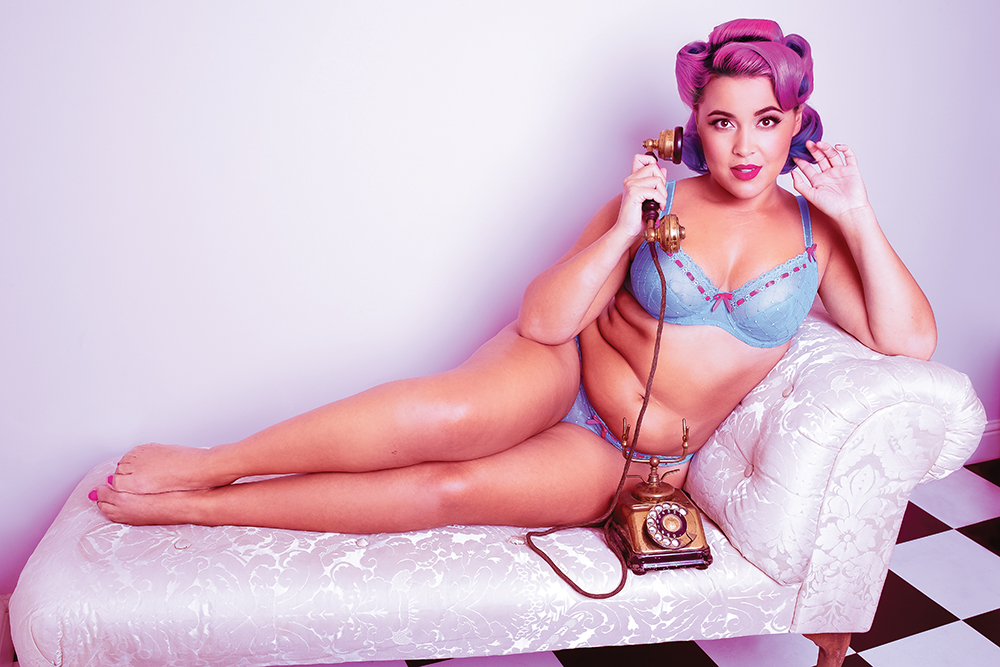
“I think even if social media doesn’t help to heal you, it can at least make you feel like you aren’t alone in going through difficult things. And that’s such a powerful times.”
Megan Jayne Crabbe is discussing the power of social media, especially when it comes to body positivity and eating disorder recovery, in one of the most beautiful vintage beauty parlours we have ever seen. Her hair is set in rollers, and she looks every inch the pin up in a set of bright pink underwear and a pastel pink cover up.
Megan, 24, is one of the biggest voices in the body positivity community, one that she discovered when it was first forming, and quickly became involved with when she realised it was an alternative way to think about her own, and others’ bodies.
“When I first discovered Instagram, I used fitspo content on it to beat myself up and make me feel not good enough, but by some kind of miracle I found the complete opposite in the body positivity movement. “When I found the movement, it was just 200 people; it was very small and community orientated. We were just getting to know each other and cheering each other on. None of us thought it would become a big thing.
“It was a community of people who were healing from all of the negative messages they had been taught about their bodies. And I wanted to be a part of it, I wanted to jump into it and spread the message because having come from a history of anorexia, there wasn’t anyone else out there at the time who was saying you can love your body after recovery, even if it’s bigger than you think it should be.
“I think often when we see recovery images, the important thing is that they’re still thin on the other side. I always thought I was the biggest failure because I didn’t manage to stay thin and that I had recovered wrong so I thought ‘you know what, there must be other people who feel the same way as me who have recovered and are chubby, or fat, and feel like failures’ I wanted to talk to them and let them know that they are not failures and that they deserve to find peace with their bodies as well.”
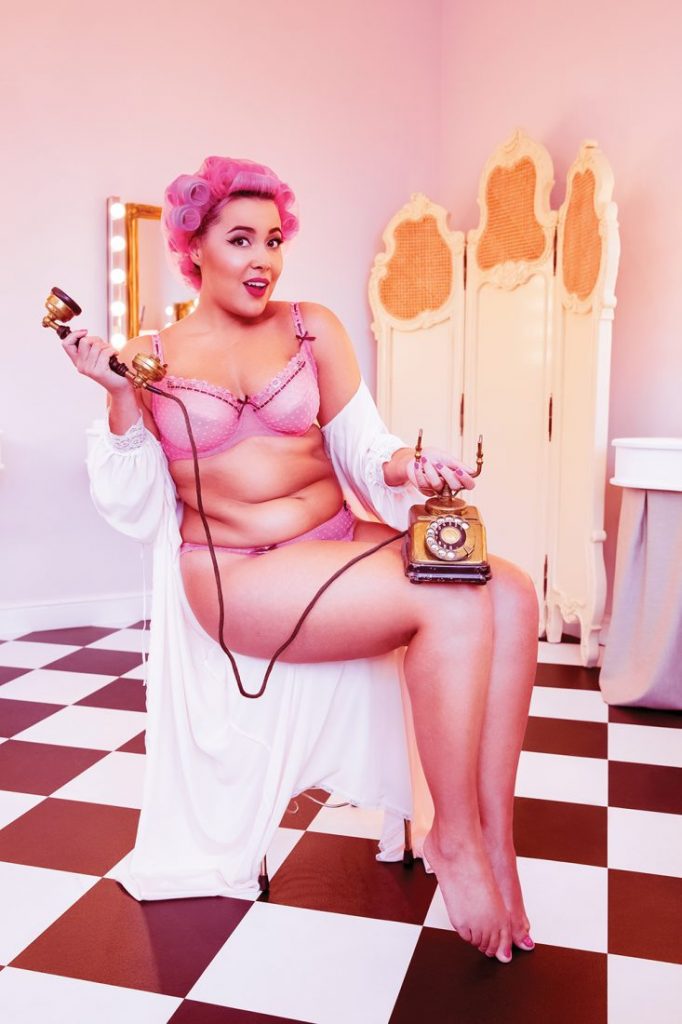
Megan hopes that the popularity of the body positivity movement is helping to shift our perspective, as a society, on body image by exposing us to a much wider variety of people on our social media feeds, including those who are different body shapes and sizes, different skin tones and differently abled.
“There’s still a lot more bad than there is good online and I’m not surprised that Instagram is the worst when it comes to impacting our mental health because the people who we, as a society, make famous on the internet aren’t showing reality 99% of the time.
“And we crave that, we want to see it, but we also don’t realise how bad it makes us feel about ourselves and our lives. I hope that this counter-culture is making a difference and is helping. I hope it is going to build into the ‘norm’ as well because I don’t want it to be a separate counter movement forever.
“I think exposure therapy, just seeing different body types, is so simple but one of the most effective ways of changing the way that you see yourself.
“What we see everyday is teaching us how we see ourselves, whether we like it or not, and also how we see other people in the world. It helps you to let go of any stereotypes that you’re holding about people and the way that they look. It helps you see that everyone has worth and value. We aren’t just our size, or the colour of our skin, we’re so much more than that.
“Following different people and reading their words has helped me to let go of the preconceptions that I was holding as well.”
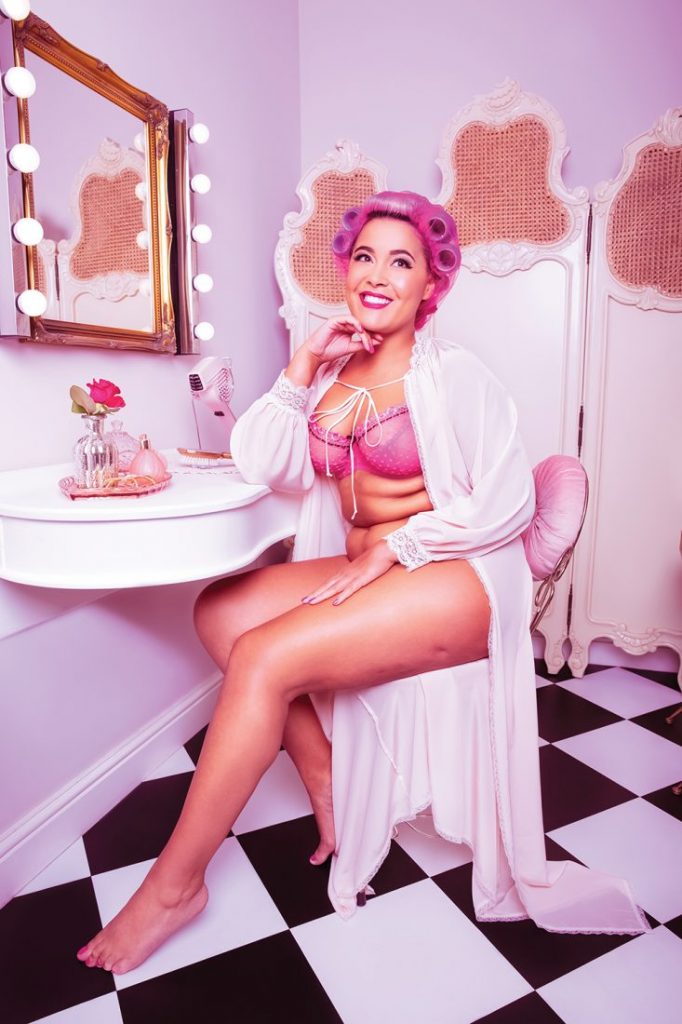
When Megan was 14 she was diagnosed with Anorexia Nervosa, and spent the following two years in and out of hospital being treated and coming dangerously close to dying. Luckily, at the age of 16, her recovery began, but while her body weight had increased, her way of thinking was not fully recovered and she found returning to a society that places high value on dieting and thinness difficult.
“There is this misconception that if you’ve had a restrictive eating disorder, as soon as your weight is restored you’re recovered, everything’s fine and you can go back to your normal life. And actually what happens is you go back to a world that is still obsessed with thinness, dieting and calorie counting.”
While the body positivity movement helped Megan to develop a different way of thinking, taking the first steps to share her own body was still difficult, and it took her a while to get used to being so vulnerable online.
“I was a UK size 10 when I first discovered the community and I still hated my body, even thought I was a lot smaller than I am now. I was terrified of putting my body out there, not just in fear of body shaming, but also in fear of slut shaming. I was terrified of the trolls that would inevitably come because when you’re a woman on the internet, you’re going to get trolled.
“Luckily, I had these people around me who were cheering me on and were saying ‘good for you, you can do this’ and it gradually got easier and easier. In the beginning I was still very ‘posy’ and I was taking 100 pictures and choosing the most conventionally flattering picture (the one where I looked the smallest). It was a learning process to get away from the idea that you have to look flattering all of the time.”
Since posting her first photo, Megan has become far more comfortable with her body, and now regularly shares pictures of her in bikinis or underwear and #donthatetheshake videos – where she dances with confidence and zero concern for how her body looks. While Megan believes the body positivity movement is helping people to embrace their bodies, she does feel that mainstream media still has a huge impact on us and that now, more than ever, it is difficult for us to determine what is real and what is heavily edited.
“We have no idea what actual bodies look like anymore. We have no idea what real bodies look like and I don’t mean real as in a certain size, I mean not photoshopped, not edited and not posed within an inch of their life.
“For example, the pouch at the bottom of your stomach that most women have and we think is a horrible flaw because we never see it in images. It’s always edited out or posed in a certain way to look flat but 99% of women have it. So when you actually see it online I think people are just relieved, they’re so relieved to see a body that looks like theirs, it’s a really powerful thing, to see yourself represented.”
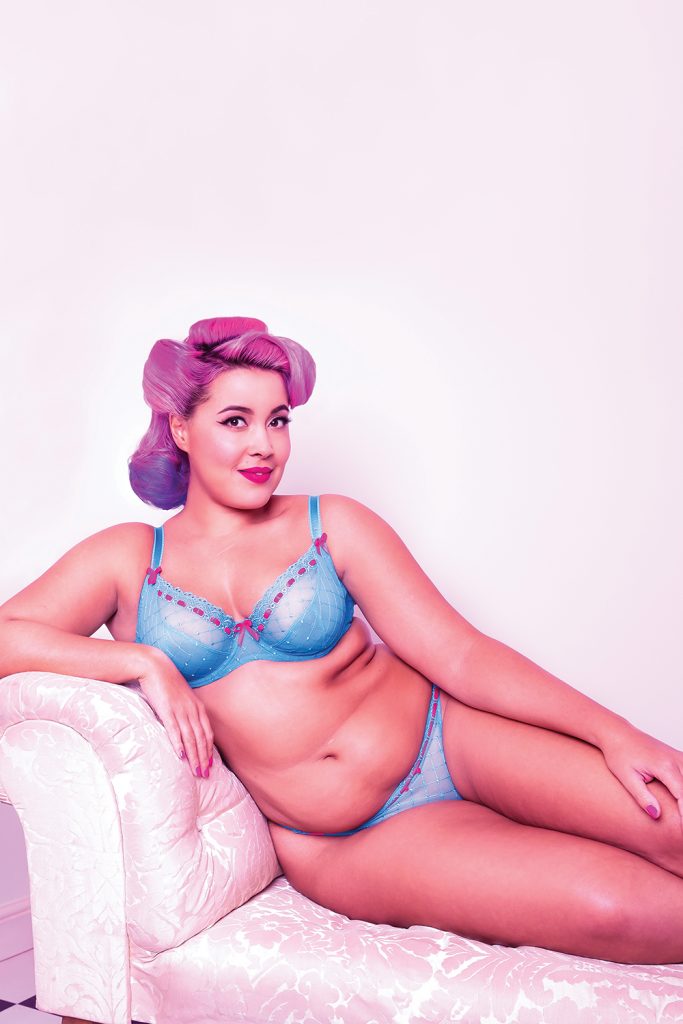
While Megan is aware that the way we curate our feeds can impact our mental health, and the way we feel about ourselves, she doesn’t think the majority of people are aware of this, and she hopes her feed can help to change their mindset.
“I don’t think people realise that you can curate your feeds to make you feel good about yourself and you don’t have to keep seeing all of the stuff that you’ve been seeing for years, that makes you feel like crap.
“I also think that the majority of people don’t realise that the positive stuff is out there. I don’t think we can blame people for not knowing that and also it is scary to think maybe you should change your entire mindset. So even if people know it’s out there, often it’s that fear of letting go of that way of thinking and it is terrifying but it’s bloody worth it.”
Megan’s Instagram account, @bodyposipanda, has a following of 870,000+ and as she has such a huge platform, Megan likes to regularly use it to amplify the voices of people who have stories to tell about their struggles within society as part of a marginalised group.
“I think it’s really important for me, and for anyone in the community who is in a less marginalised body, to recognise the privilege that they have. I am under no delusion that the number of followers I have is largely because I am sending this body positivity message from a body that is seen as more socially acceptable.
“I’ve always seen it as my responsibility to use my privilege to shine a light on more marginalised bodies and voices that aren’t as appreciated and I think that is what body positivity is about, because it’s not just about feeling positive in your own body, it is uplifting and celebrating the bodies that never get celebrated.
“The content is never as popular as a picture of myself, but I think it has to be done for the movement to actually progress.”
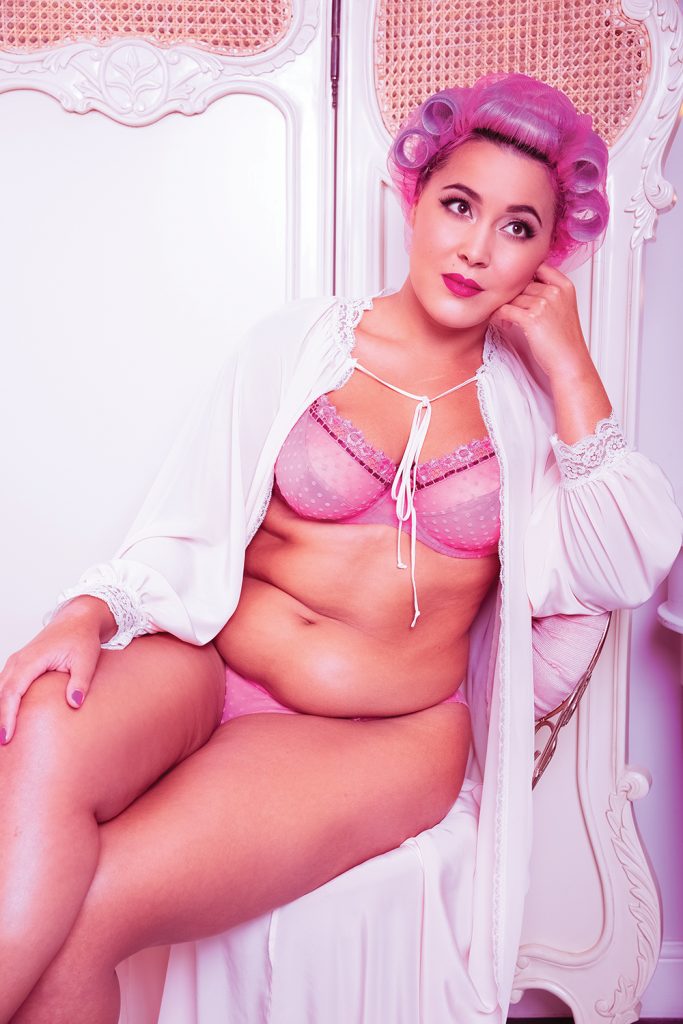
Although she has a considerable social media following, Megan still works full-time, caring for her older sister who has Cerebral Palsy. This has helped her to understand some of the struggles those who are less able bodied face, and has encouraged her to also share their stories on her Instagram.
“When I go out with my sister people just stare or treat her like a child. She’s 28 years old and people will come up to her and pat her on the head as if she’s a dog or a child and talk to her like she’s five years old. I think that’s something that happens to a lot of disabled people and it’s really dehumanising. The first step to breaking that is allowing differently abled people to be seen and to be heard outside of the stereotypes.
“There’s an amazing account called @sitting_pretty and she’s a wheelchair user and she will take little anecdotes from her day and turn them into these really powerful, poetic posts just about how the world should change and I repost her a lot.”
This is also an important factor in Megan’s recently released book, Body Positive Power, in which she shares not only her own story, but guest essays on a variety of topics.
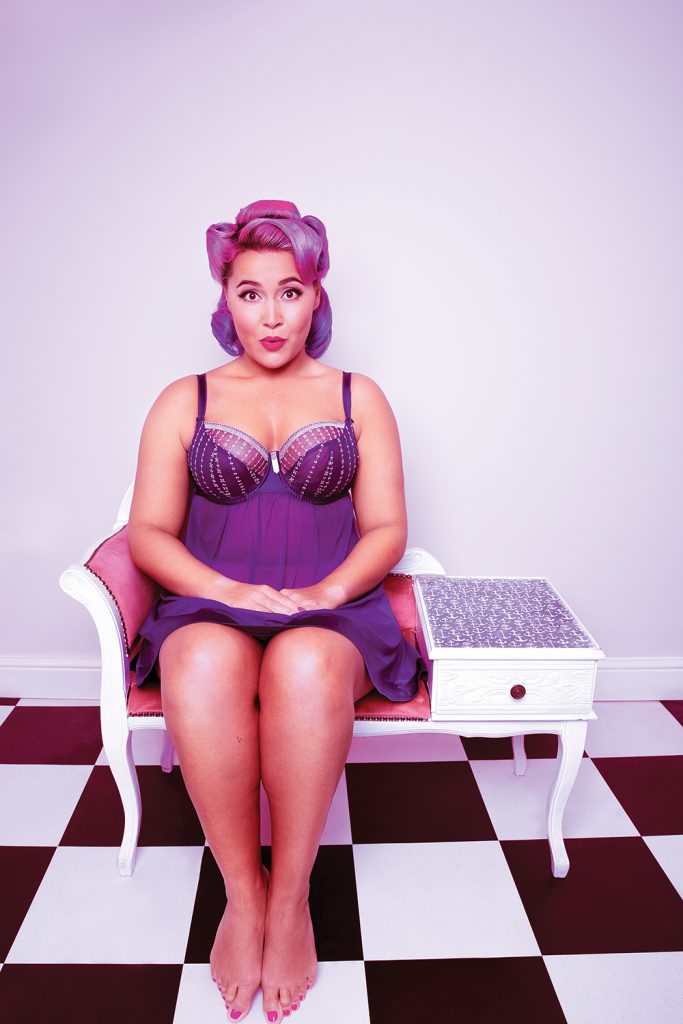
“Body positive books and feminist books have been the driving force for me on my entire journey. And I wanted to share information and also share my personal journey in a way that showed if I’ve been able to recover, then anyone can.
“It was really important to me that everything in the book was researched. It’s not just a bunch of my thoughts mashed together with some cute, uplifting phrases, it is really thoroughly researched and evidence based.
“It was very draining and I wrote the eating disorder chapter first, which has a lot of my story, including things that were very difficult to revisit and I wasn’t in therapy at the time. I had to start getting therapy after I had written that chapter because it was so emotionally draining to revisit these things. I knew it was going to be the most difficult chapter to write and I thought it would help to really focus why I wanted to write the rest of it.
“I also have multiple guest essays in my book because I wanted it to be about more than size and weight. I wanted it to be intersectional and cover all aspects of identity that people are taught to be ashamed of. So I have got a guest essay about being differently abled, and I’ve got a guest essay about being dark skinned and seeing only whitewashed images of beauty in the media. And I’ve got another guest essay from a guy talking about body image for men. I’ve tried to cover everything and lift up the voices that deserve to be lifted up.”
